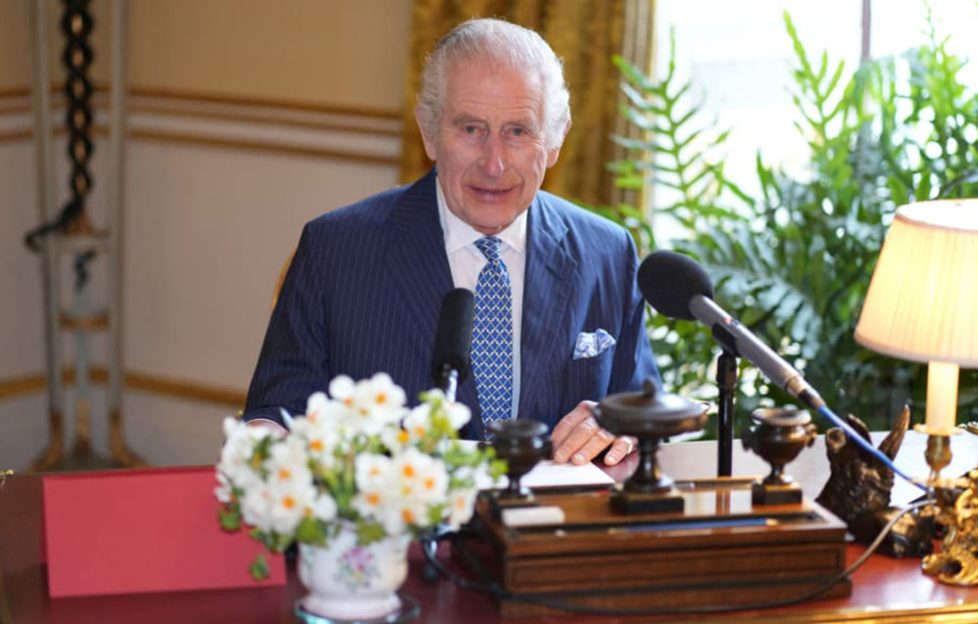
As England reels from defeat in the final of Euro 2024 at the hands (or rather, feet) of Spain, King Charles has written a note of commiserations to the team.
We were stopped in our tracks this morning by this masterclass in offering formal condolences, addressed to manager Gareth Southgate, as England’s dream of having a men’s team win a major international football title was dashed by a dramatic 2-1 score-line.
The full letter reads:
Although victory may have eluded you this evening, nevertheless my wife and I join all my family in urging you and your support team to hold your heads high.
All those who have participated in sporting activities at any level will know how utterly despairing such a result can feel when the prize was so near – and will join me in sending heartfelt sympathy, even as we congratulate Spain.
But please know that your success in reaching the European Championship final is a really great achievement in itself, and one that brings with it the pride of a nation which will continue to roar for the Three Lions today – and in the many triumphs which I have no doubt lie ahead.
While it’s far more likely that, in this day and age, we’d be writing a letter to someone to commiserate a death, rather than a sporting loss, there’s much to be learned from the key notes His Majesty hits with his missive.
Let’s break them down.
Written Commiserations: Things to consider
Write in a timely fashion
Striking while the iron is hot, so to speak, has maximum impact.
King Charles’s letter was issued via X the same evening as the England team’s defeat. It puts King and country right there with the players.
Sending written commiserations promptly demonstrates a keenness to support the person affected.
Acknowledge what’s happened sensitively
The King refers to the loss as victory having eluded the team, rather than them being defeated. This feels much kinder.
Make it personal
“The contents of the letter must come from the heart,” writes etiquette expert William Hanson on sending a good letter of condolence.
“Phoney sentiment will stand out, especially to British ears.”
The King’s reference to “the pride of a nation which will continue to roar for the Three Lions” feels like a particularly rich example of this.
Demonstrate empathy
Highlighting a shared point of connection can help a person who is feeling sad to feel less alone.
While only a handful of elite players will experience losing a game on the world stage, King Charles calls out the universal emotions evoked by playing (and losing) sport at any level – in particular, those that arise when falling at the final hurdle.
Include positives
The King tells the players – and support staff – that they can “hold their heads high”. He acknowledges what an achievement it was to make it to the final of the competition at all.
If we were to apply this to a letter of condolence following a death, it might be to include what you loved or will remember fondly about the person who has died – a particular act of kindness or generosity, for example.
Be magnanimous in defeat
Not applicable to a death, of course – but the King’s inclusion of “we congratulate Spain” is a touch of pure class.
Read the best love letters of all time
Our Gracious Queen: Celebrating the life of Queen Elizabeth II




